
Tecentriq, compared with chemotherapy, improved survival while maintaining quality-of-life in patients with non-small cell lung cancer considered ineligible for platinum-based chemotherapy.

Brielle Benyon, Assistant Managing Editor for CURE®, has been with MJH Life Sciences since 2016. She has served as an editor on both CURE and its sister publication, Oncology Nursing News. Brielle is a graduate from The College of New Jersey. Outside of work, she enjoys spending time with family and friends, CrossFit and wishing she had the grace and confidence of her toddler-aged daughter.
Follow Brielle on Twitter @Brielle_Benyon.

Tecentriq, compared with chemotherapy, improved survival while maintaining quality-of-life in patients with non-small cell lung cancer considered ineligible for platinum-based chemotherapy.

An ongoing phase 1 trial is analyzing the use of a novel cancer vaccine plus the immunotherapy agent, Keytruda, for patients with triple-negative breast cancer.

We took a look back at the most noteworthy and compelling myeloprolifearative neoplasm stories from 2023.

Exercise was shown to reduce chemotherapy-induced peripheral neuropathy in ovarian cancer survivors, according to findings from a recent study.
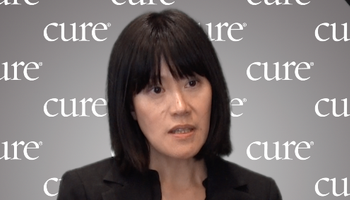
In patients with cancer, clonal hematopoiesis was associated with cardiac toxicity and in increased risk of death due to heart conditions.

Momelotinib led to symptom, spleen and anemia benefits for patients with previously treated myelofibrosis, according to updated study findings.

A majority of women with a history of colorectal cancer experience long-term gastrointestinal symptoms, which may be associated with psychological distress, according to recent research.

Patients with inherited cancer genes who are undergoing fertility preservation before treatment may be able to learn if their embryos have the mutation as well.

Researchers found a difference in outcomes between head and neck cancers with high and low expression of NF-kB, which may one day lead to more personalized treatments for the disease.
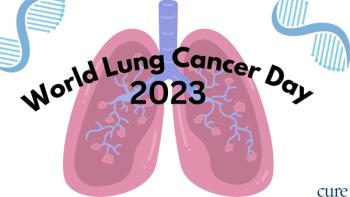
In honor of World Lung Cancer Day, we took a look back at some of the exciting progress being made in the space.
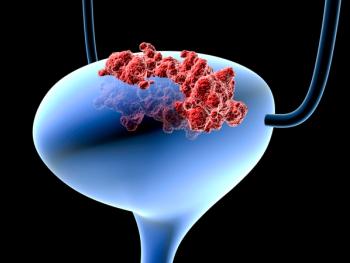
A phase 1 trial just launched, and will evaluate IO102-IO103 plus Keytruda in patients with bladder cancer whose disease is unresponsive to BCG therapy.

Patients with cancer should always let their clinical team know if they are experiencing any new symptoms or concerns.

The Food and Drug Administration approved Jemperli with chemotherapy and then alone for patients with dMMR or MSI-H advanced endometrial cancer.

A global trial recently launched that will investigate a personalized mRNA vaccine with Keytruda for patients with skin cancer.

We recently asked our audience of patients, survivors and caregivers about the ongoing cisplatin and carboplatin shortage. Here’s what they had to say.
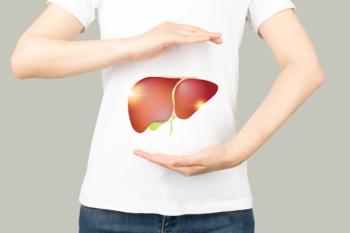
Larger liver resections do not always improve survival in patients with gallbladder cancer, recent research showed.

Multiple considerations must be made when determining cancer treatment regimens amid the ongoing chemotherapy shortage, explained an oncologist.

The Food and Drug Administration approved a Vanflyta regimen for patients with FLT-ITD—positive acute myeloid leukemia.

Frontline Zejula maintenance therapy decreased the risk of disease progression or death in patients with newly diagnosed ovarian cancer.
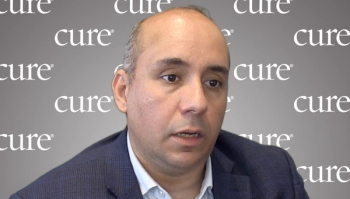
Therapies that target specific characteristics on kidney cancer cells are showing promise in the space, an expert explained.
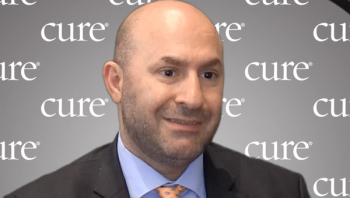
With new treatments being explored, it’s an exciting time for patients with kidney cancer, an expert explained.
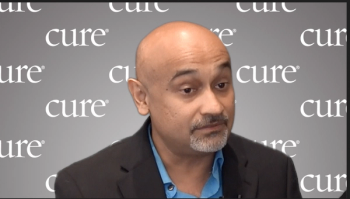
Radiation is an emerging treatment modality in kidney cancer. Research shows that it is effective and helps patients maintain a good quality of life.

The Food and Drug Administration accepted a supplemental New Drug Application for Brukinsa plus Gazyva to treat patients with relapsed or refractory follicular lymphoma.

Disease symptoms, as well as other health conditions, can have a major impact on the treatment plan for patients with myeloproliferative neoplasms.
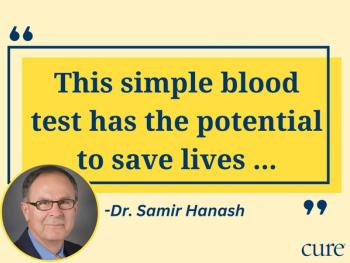
A blood test protocol proved to be more effective than US Preventative Services Task Force criteria for predicting which patients are at a higher risk of dying from lung cancer.

Patients being treated for a myeloproliferative neoplasm should be open with their care team about any side effects they experience, an expert said.

Zeno showed promise in treating patients with advanced, unresectable or metastatic NRG1-fusion pancreatic cancer.

Dr. Susan Love, founder of the Dr. Susan Love Foundation for Breast Cancer Research, died of leukemia.

Patients with lower risk myelodysplastic syndrome may now receive imetelstat — despite it not being FDA-approved.

Kim Stuck credits her cannabis use to the fact that she maintained her weight, was able to work out and was not in pain during breast cancer treatment.